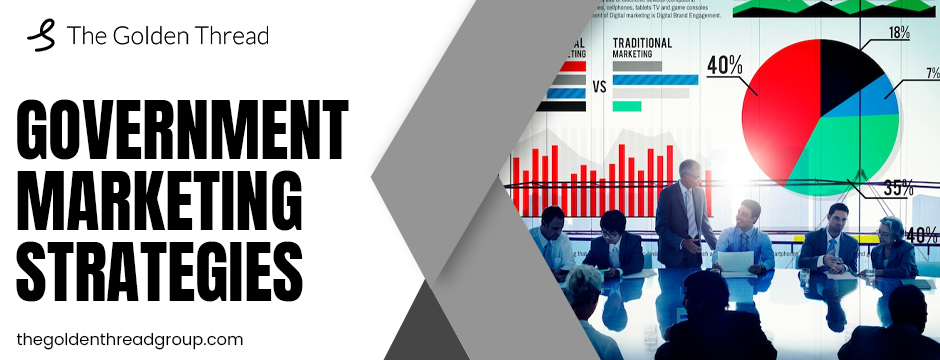In today’s rapidly evolving digital landscape, the adoption of artificial intelligence (AI) is not just a trend—it’s a necessity. Governments and corporations alike are facing ever-increasing demands for agility, transparency, and personalised engagement. Traditional marketing and strategic communication models, often built for predictable environments and mass audiences, are being challenged by citizens and customers who expect relevance, speed, and authenticity. Against this backdrop, AI is ushering in a paradigm shift. No longer are data-driven decisions a luxury; they are central to survival. From predictive analytics to natural language generation, machine learning to algorithmic content delivery, Government and Corporate Strategic Marketing are giving organisations the capacity to be smarter, faster, and more responsive.
But the transformation is not just about tools—it’s about the strategic mindset. Governments are seeking ways to improve public trust, personalise citizen services, and anticipate societal issues before they escalate. Likewise, corporations are striving to maintain relevancy across diverse markets, optimise marketing spend, and build deeper emotional connections with consumers. AI enables these aims by augmenting human capabilities without replacing them—automating repetitive tasks, surfacing hidden patterns, enabling hyper-targeted content, and improving outcome measurement.
The Transformational Role of AI for Government & Corporate Strategic Marketing
Predictive Strategy & Planning
AI’s most significant impact is being able to make predictions and anticipate needs. For example, governments will be able to analyse massive datasets related to social, economic, and environmental factors to anticipate a public health crisis, an infrastructure bottleneck, or a shift in issues that voters are concerned with. Likewise, corporations apply predictive models to understand emerging consumer behaviours or economic disruptions, and therefore marketing strategists will be empowered to not only react but also be proactive in anticipating and shaping campaigns, policies, or offerings.
Hyper-Personalisation & Audience Segmentation
AI can make segmentation at scale possible – not only by demographics but as a function of behavioural preferences, sentiment, contextual classification, and even micro-moments. For corporations, this means being able to tailor content, pricing or communication channels to individual preferences. For governments, this means providing citizens with services, public awareness campaigns, or policy communication in ways that resonate with communities, improving understanding and trust.
Content Generation & Automation
AI-powered tools can currently assist with content generation—drafting speeches, social media posts, generating summaries of reports, or creating visuals—enabling human teams to concentrate on strategy, creativity, and nuance. Campaign delivery automation (scheduling, programmatic ad buying, etc.) alleviates torturous processes and promotes rapid iteration. Governments can efficiently deliver urgent updates and public advisories. Corporations can sustain ongoing content workflows regardless of geography or channel.
Improved Measurement & Optimisation
Measurement was once an afterthought to execution, with AI adding real-time monitoring, feedback loops, and optimisation performance methods. A/B testing, attribution modelling, and predictive ROI analytics help enable governments and businesses to comprehend which messages, channels, or campaigns are working—and which are not. Now, budget allocation is almost a dynamic process, with the ability to shift resources towards more meaningful interactions.
Trust, Ethics, and Transparency
The power of Government Marketing Strategies requires us to share the responsibility for discretion. The public’s concern about data privacy, algorithmic bias, or decision-making transparency is warranted. Governments must ensure that AI systems are deployed ethically—specifically, transparency about how citizen data is collected, used, and safeguarded. Corporations, in the same spirit, must check against misuse of AI, deceptive personalisation, deep-fake risks, and other relevant dangers. Creating ethical boundaries, audit trails, and human review must evolve to safeguard the legitimacy of AI systems.

Crisis & Rapid Response Communications
In times of crisis—natural disaster, health pandemic, political volatility—speed and clarity are paramount. AI tools can monitor social media and news flows and assess sensor data, resulting in early notifications of imminent crises to government officials. Language models can assist in drafting advisories or emergency responses to disseminate, while also ensuring messaging fidelity. In like manner, corporations that turn to AI for crisis management—managing reputational issues, or shocks to their supply chains—can utilise it similarly: mapping risk, sentiment monitoring, and rapid response.
Challenges & Barriers
Even as Government and Corporate Strategic Marketing offer powerful opportunities, there are significant hurdles:
- Data Quality and Access: AI is only as good as the data feeding it. Many governments and companies struggle with incomplete, biased, or siloed data.
- Talent and Skills: Developing or integrating AI-capable teams requires investment. Strategic marketing professionals need upskilling in data literacy, AI tools, and ethical implications.
- Cost & Infrastructure: AI systems can be resource-intensive. Cloud infrastructure, computing power, ongoing maintenance, and updates—these incur costs.
- Regulation & Compliance: Laws around data privacy (e.g. GDPR), national security, and content regulation can limit what AI systems can do or how they’re deployed.
- Bias & Ethical Risks: Unintended bias in algorithms, concerns over surveillance, and misuse of content generation—all require vigilant oversight and governance.
Final Words
AI is fundamentally reshaping how governments and corporations handle strategic marketing. By enabling predictive planning, hyper-personalisation, automated execution, and continuous optimisation, Government and Corporate Strategic Marketing offers tools to engage citizens or customers more effectively, build trust, and deliver more impact. Of course, with these advantages come responsibilities around data, ethics, transparency, and governance—but those are challenges that can be managed and are well worth the effort.
If you are looking to harness the power of AI in your strategic narrative, marketing communications, or brand growth—especially in complex environments spanning multiple geographies—some partners can help you blend authenticity with technology. For those who aspire to do that, The Golden Thread Group provides expert services in strategic storytelling, fully integrated marketing, communications, digital, social media, marketing automation and lead generation. Our approach—uniting authentic storytelling with full-funnel, results-driven strategies—makes us a strong partner for both governments and corporations aiming to lead, not just follow.
